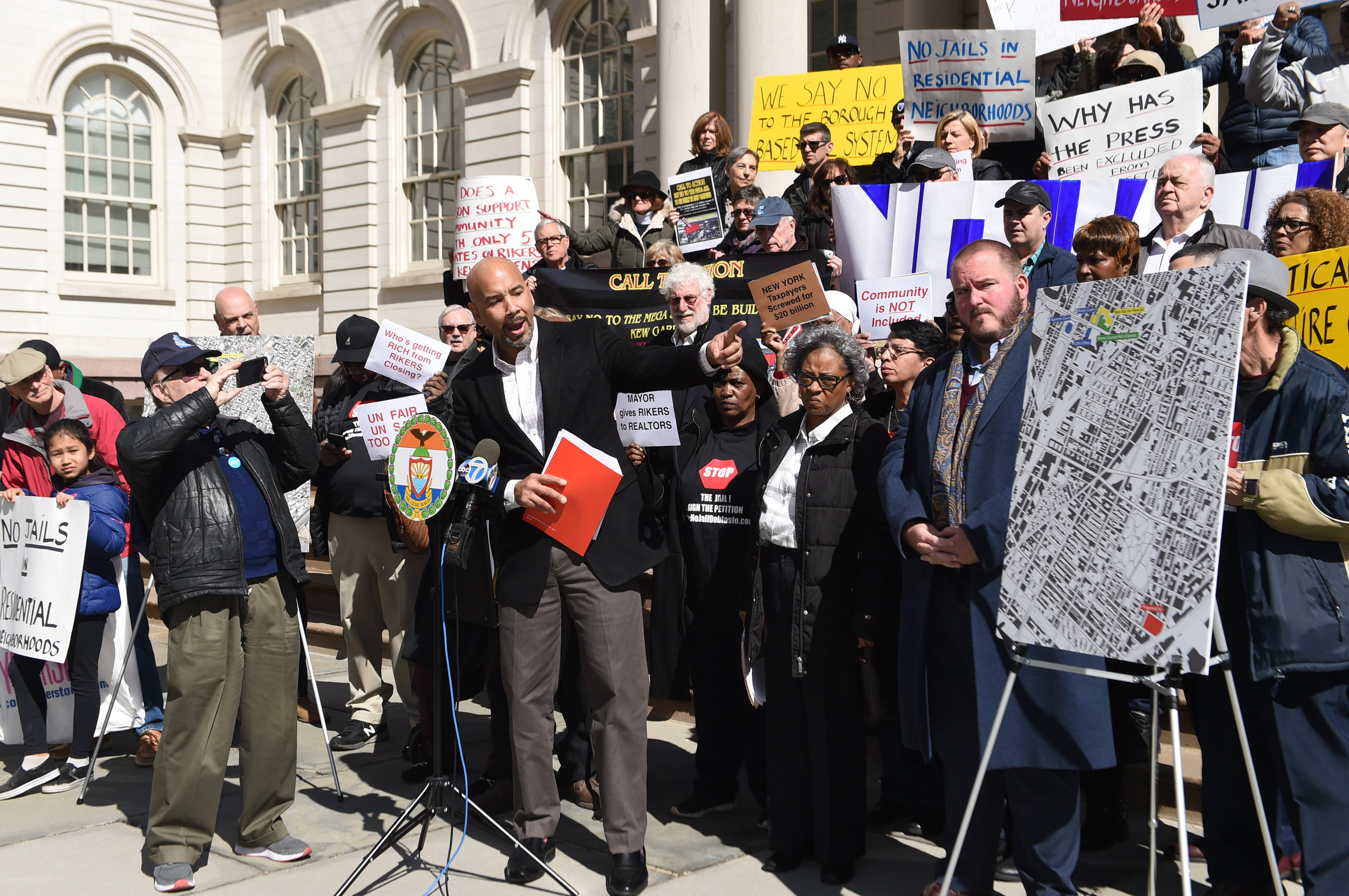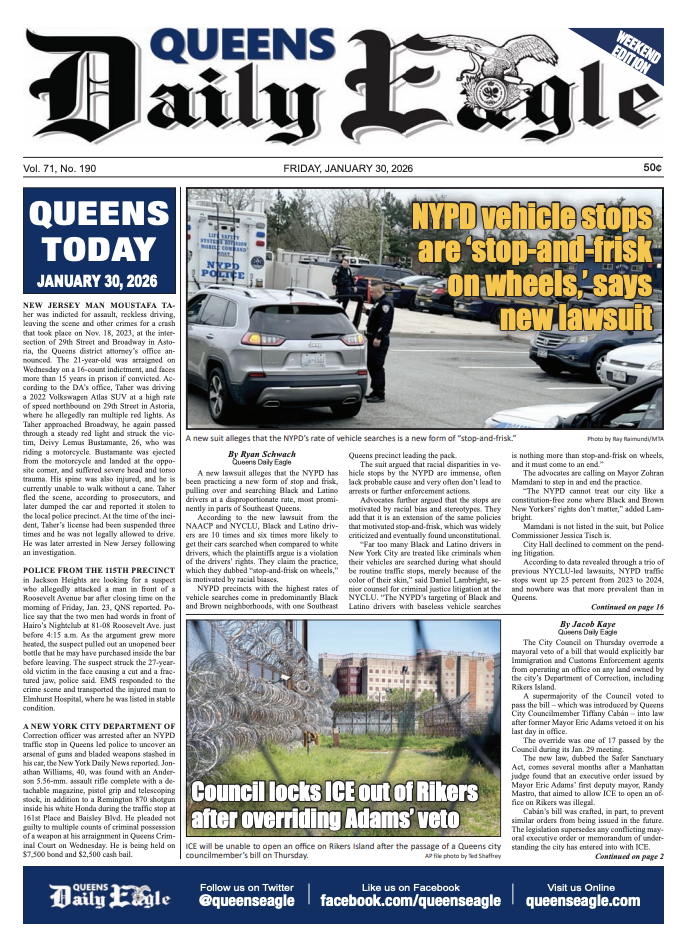Diaz Jr. would take 'hard look' at jails plan if elected mayor
/Bronx Borough President Ruben Diaz Jr. demonstrates against the city’s jail plan at City Hall in March. Eagle file photo by Todd Maisel
By David Brand
The most prominent opponent of the city’s plan to build four new community-based jails may be the very person who inherits it — and if that happens, he pledges to take a “hard look” at the project.
Bronx Borough President Ruben Diaz Jr. has made no secret of his plan to run for New York City mayor in 2021, or his opposition to a proposed jail in Mott Haven. If he wins the mayoral election, he will take over the plan to close Rikers Island jails and build new facilities in each borough but Staten Island. He supports those foundational aspects of the proposal.
Diaz even advocates for building jails next to courthouses, including the Queens Criminal Courthouse in Kew Gardens. But, he said, he opposes the city’s plan for the Bronx and the process of packaging all four facilities into a single land-use review application.
“I would reexamine the process and take a hard look” if elected mayor, Diaz told the Eagle. “We can move forward with closing Rikers Island but reevaluate the sites individually.”
“I don’t know if that would take starting the process all over again,” he continued.
The city has steamrolled community concerns and opened a “Pandora’s box” for future development, Diaz said. He supports a plan to build a jail next to the Bronx Hall of Justice instead of on the site of an NYPD tow lot in Mott Haven, which was slated for affordable housing and community development. The city contends that the courthouse site is too small.
“It’s fascinating that the city would say such a thing when they cannot prove to neither you nor I that the site [would not work] because there has not been a feasibility study for the site,” he said.
He said a revised estimate on the number of people in city jails could also make smaller facilities more feasible. The city initially estimated that there would be 5,000 people in city jails by 2026, but recently decreased that estimate to 4,000.
The Mayor’s Office of Criminal Justice is considering smaller facilities and said the city is “grateful for everyone participating in the land use review process and we will continue to take all input seriously as we move forward with the plan to achieve our shared goal of closing Rikers and building a smaller, fairer justice system.”
“A majority of New Yorkers support the City’s plan to close Rikers and build community facilities that would support the remaking of our justice system,” the Mayor’s Office of Criminal Justice said in a statement.
Diaz’s perspective on the jails plan differs from many opponents in Kew Gardens, like members of Community Board 9 who voted unanimously to reject the plan to build a 270-foot jail and 676-space parking lot behind the Queens Criminal Courthouse. The advisory vote is part of the city’s Uniform Land Use Review Procedure, or ULURP.
Diaz thinks four new jails are a good idea but said the city did not do enough to engage neighborhood residents in Kew Gardens, the Bronx, Manhattan and Brooklyn. All four affected community boards voted in favor of resolutions rejecting the plan.
“We should never trivialize the concerns of a community,” Diaz told the Eagle. “With that said, I am clear that Rikers Island should be closed. And if you’re going to close it down, you should have different facilities.”
Though they differ on specifics, Kew Gardens residents stood with Bronx jail plan opponents to denounce the plan at a rally on the steps of City Hall in March.
“I thank the people of Kew Gardens for standing with the Bronx when we had our press conference,” he said. “We were there for the same ends but different means.”




